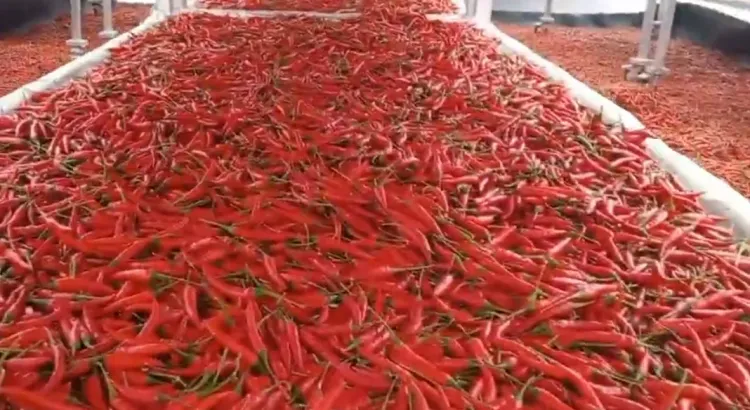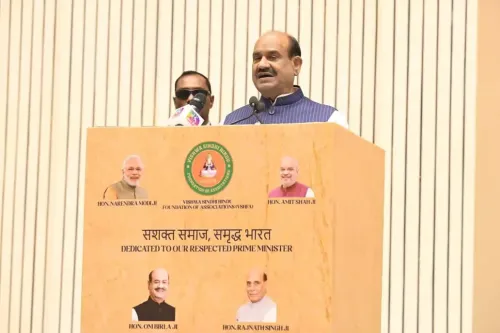How are Chilli Farmers in TN's Ramanathapuram Coping with Unseasonal Rains?

Synopsis
Key Takeaways
- Unseasonal rains have severely impacted chilli yields.
- Farmers are experiencing significant financial losses due to reduced market prices.
- Infrastructure support is crucial for post-harvest quality.
- Despite challenges, some farmers remain hopeful for future exports.
- Timely government intervention is needed to enhance sustainability.
Chennai, June 24 (NationPress) The chilli harvest season has concluded in Tamil Nadu's Ramanathapuram district, yet farmers are grappling with the repercussions of unexpected rainfall earlier this year.
The unanticipated showers, particularly in December and March, have significantly impacted the crops, leading to yield reductions and a steep decline in both domestic and international exports -- estimated to be between 20 percent and 50 percent.
Ramanathapuram is renowned for cultivating high-quality varieties of chillies, notably Samba and Mundu, across nearly 15,000 hectares. However, officials from the Agriculture Marketing and Agribusiness Department reported that over 11,000 hectares were affected by the erratic weather, severely diminishing both the quantity and quality of the harvest.
“Farmers usually harvest between 300 and 350 kilograms of chillies per acre. This season, the average plummeted to just 200 kilograms,” stated a senior official.
“The damage has compromised quality, which has subsequently decreased market prices. Last year, chillies sold for up to Rs 250 per kg. This year, prices have fluctuated between Rs 120 and Rs 200 per kg, depending on quality.”
Despite these challenges, some farmers maintain optimism. R.P. Radhakrishna, an organic chilli farmer and exporter from Kamudhi block, noted that there remains a robust demand overseas for organically cultivated Samba and Mundu chillies.
“Last year, we exported approximately 80 tonnes to countries like the US and Germany. This year, due to the diminished yield, we were only able to send 50 tonnes,” he mentioned.
“However, with the harvest wrapped up, we are gearing up for the next sowing cycle, which commences in the Tamil month of Aadi (July). If conditions improve, exports should rebound by year-end,” Radhakrishna added.
In light of the crop losses, farmers have reiterated their appeal for infrastructure support. Many are urging the government to create air-conditioned storage facilities that would help maintain chilli quality and lessen reliance on costly private warehouses.
“There is a clear international demand for Ramanathapuram chillies. To remain competitive, we need enhanced post-harvest infrastructure and support for climate-resilient and pest-resistant chilli varieties,” remarked another farmer. As the next cropping season approaches, farmers are hopeful for timely government intervention to mitigate risks and bolster future production and exports.









